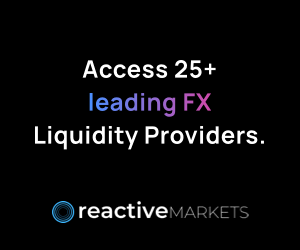European Fund Managers Also Looking at FX Counterparty Diversification: Survey
Posted by Colin Lambert. Last updated: January 22, 2024
Very much in line with their peers in the UK and North America, European fund managers are seeking counterparty diversification and are exploring greater automation in their FX activities.
The survey, the latest in a series published by MillTechFX, surveyed 250 senior officials at European firms and finds that 90% of them are seeking to add banking counterparties due to a perceived lack of transparency in the FX market. This has been a theme of the surveys ever since Silicon Valley, First Republic and Signature Bank in the US faced went under in early 2023 and Credit Suisse was acquired by Swiss rival UBS after it too faced liquidity and operating problems.
It seems European managers view the situation more urgently, as the 81% of North American and 80% of UK managers are treading the same path according to recent surveys published by MillTechFX.
The average hedge ratio of European fund managers was 40-49% in the latest survey, in line with the ratio in the UK, but below that in North America, where it is 50-59%, however 61% of respondents said this was higher than the previous year, while 68% of UK managers raised their hedge ratio in the latest survey, as did 69% of North American.
Also repeating findings from other regional surveys, the European version finds that fund managers are challenged by manual processes and employ around three people to handle their FX business. France “leads” the way by relying the heaviest on email, with 67% of managers there using it for their FX transactions, with 42% also using the phone – overall 87% of European managers are seeking to automate and add technology the survey finds. While this is a high number, it should be noted that MillTechFX’ target clients were initially medium and small managers and corporations – if these firms make up the survey sample, it is unsurprising that the number is so high.
“Many European fund managers are still reliant on manual processes to transact in FX which is wasting time and resources,” observes Eric Huttman, CEO of MIllTechFX. “The majority are turning to automation brings major benefits including centralised price discovery, creating an end-to-end workflow, heightened transparency and faster onboarding – all of which can provide fund managers with a clearer view of their FX costs as well as greater operational efficiency.”
The survey also makes a point of noting that the “significant time suck” of manual processes with respondents spending an average 2/6 days per week on FX-related activity. That said, it does also report that 88% of managers believe FX is significant to their business and that 89% of the were impacted by euro volatility.
On the subject of transparency, 82% of respondents believe that there is a lack of transparency in the FX market, specifically that there are “hidden costs” in the spread, that are not explicit (and therefore cannot be passed on to the end investor). Respondents also cited their inability to compare the market, with getting competitive quotes the third biggest challenge – again this suggests the respondents are at the smaller end of the market.
“Despite being one of the largest markets in the world, the FX market is also one of the most opaque,” claims Huttman. “Fund managers across the globe come up against hidden costs and usually only work with a small number of counterparties due to operational complexities, meaning they’re often left in the dark about whether they get a good deal or not.”
The survey cites the complexity of setting up multiple banking relationships as a reason for the “limited choice” available to respondents, and adds that few have access to third-party TCA tools – presumably because they will not pay for those that are available. Interestingly, Sweden is cited as the European nation with the highest number challenged by getting comparative quotes and securing credit lines – this could also be a factor of the SEK not being supported by as many banks as, for example, the euro.
As is the case in the other surveys, ESG plays a prominent role, with 94% of European respondents stating they took their counterparties’ ESG ratings into account when selecting them. In North America it was 96% and in the UK 89%.
“Despite volatility calming and the increasing price of hedging, it’s clear FX is impacting European fund managers’ returns and, as a result, they are prioritising FX risk management,” concludes Huttman. “In the past year, the majority have increased their hedge ratio to protect their returns while lengthening their hedge lengths, most likely to give them more certainty.”




